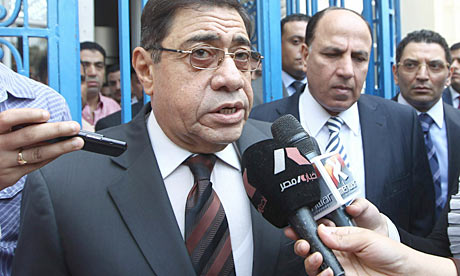Washington, DC: King Abdullah of Saudi Arabia stated in a recent speech that Muslims cannot keep remaining silent while other Muslims continue to cause harm to Islam. Abu Dhabi’s Al-Ittihad newspaper followed up Monday with an opinion piece expanding on the king’s speech in an article titled, “Who is Harming Islam? The Emirates newspaper described King Abdullah’s speech as a “scream for action.
The Saudi monarch said it was no longer acceptable to “simply complain or condemn. The time had come for action.
The king’s initiative is a welcome development, particularly coming from a monarch with the status and privilege he carries in the Muslim world. Aside from his royal title, the Saudi king also holds the title of “Custodian of the Two Holy Mosques , in reference to Islam’s first and second holiest sites, respectively Mecca and Medina.
The author of the article suggested establishing a central global “Fatwa Institute to combat the trend of independent fatwas, or religious edicts, which currently plague the Muslim world.
“Fatwa shops , is how the author of the article described it. Sunni Islam allows for almost anyone to issue fatwas, which at times has the unfortunate result of producing some very odd edicts.
The Sunni branch of Islam does not have a central figurehead. There is no equivalent to, say, the Catholic Church’s pope, or the Grand Ayatollahs found in Shi’a Islam. The closest Sunnis come to a central figure is the Chief Imam of Cairo’s Al Azhar University and mosque, Islam’s most prestigious centre of higher religious education; and the Custodian of the Two Holy Mosques, the King of Saudi Arabia.
While there is something to be said for the truly democratic principle of all imams in the Sunni branch of Islam being equal, the downside is that it leaves the Qur’an and the hadith, the sayings of the Prophet Muhammad, open to individual interpretation. And of course, much as with the Christian and Hebrew Bibles, the same verse can be understood or misunderstood, interpreted and misinterpreted in multiple ways.
And it is precisely this lack of a clear line of leadership that opens the door to confusion. Last month, Sheikh Muhammad Al Munajid, a Saudi cleric who appears often on various television shows in the Arab world issued a fatwa against Mickey Mouse, calling the famous Disney cartoon character and other mice, “agents of Satan .
The same sheikh had earlier issued a fatwa against the Beijing Summer Olympics and lashed out at the “immodest dress worn by female athletes. He is also reported to have issued a fatwa banning women competing in the Olympics; an event he also labelled “satanic .
Indeed, part of the problem with those religious edicts is that just about anyone can issue them. The author of the Al-Ittihad column concluded Muslims must unite their efforts to disrupt those committing and calling for terrorist acts in the name of Islam, because “no religion has been harmed more by terrorism and extremism than Islam . He claimed, “It is one thing to protest a government’s policies, but to randomly kill in the name of religion is something that cannot be justified.
Indeed, terrorists from Muslim countries have killed more Muslims than non-Muslims in their campaigns of bombings and suicide bombings.
The author of the article called for action from Muslim groups in conjunction with the Organisation of Islamic Countries (OIC), describing the grouping as one “hampered by bureaucracy . He begrudged the OIC for delaying a plan that was meant to develop an ideological strategy outlining steps on how to combat extremism. This plan was meant to be advanced five years ago. It is yet to be introduced.
Meanwhile, the OIC secretary general, Ekmeleddin Ihsanoglu, issued a statement last week condemning terrorism and calling for greater tolerance among Muslims.
In what was described as the strongest language to date, Ihsanoglu issued a call to Muslims worldwide to “unite against all forms of terrorism , according to a US State Department report on terrorism.
The OIC secretary general said terrorism “distorts the image of Islam as a religion of peace, compassion, and tolerance . He decried the “heinous crimes against innocents, such as the Islamabad and Sana’a bombings, which “violated the serenity of the holy month and sanctity of human life.
Ihsanoglu called the acts “atrocious sins that violate Islamic principles, and must be vehemently condemned, while their commission during Ramadan made them even more barbaric. Ihsanoglu reiterated the OIC’s “steady position of condemning all forms of terrorism, “irrespective of justification or motivation.
The organisation’s chief affirmed “unyielding determination by his organisation to bring the perpetrators to justice and “to combat this scourge by all means, in cooperation with the international community.
Muslims and non-Muslims need to hear more of that dialogue.
Claude Salhaniis editor of The Middle East Times and a political analyst in Washington, DC. This article originally appeared in The Middle East Times and is distributed with permission by the Common Ground News Service (CGNews).

